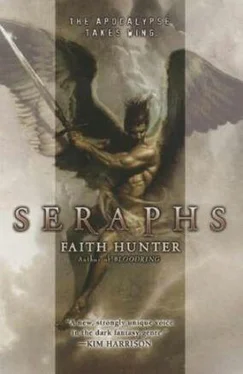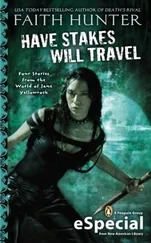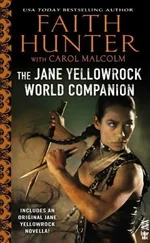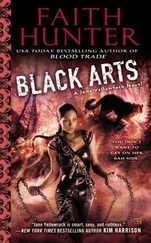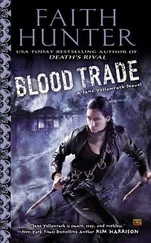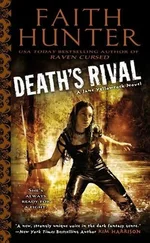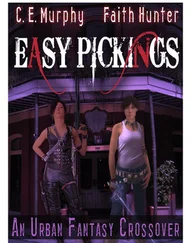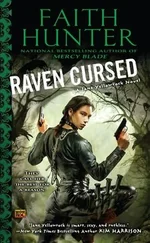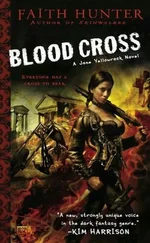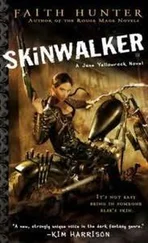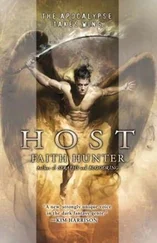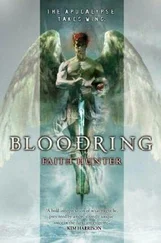I didn’t bother to listen to the dates and times Derek offered, occasions when I had my lascivious way with him. I just stared at his left overcoat pocket, waiting. When he finally fell silent, Audric said, “Are mages and their conjures a danger to the human population?”
“Yes. They should be wiped from the face of the earth. The Mage War was proof of that. The US military tried to destroy them, over eighty years ago, and would have if they hadn’t been attacked by magic and annihilated.” The crowd murmured uneasily and I could feel the weight of human eyes. “The nuclear weapon that was aimed at the mages would have left the Earth a clean and chaste place, worthy of the Most High. Now, because they’re still here, still polluting the face of the world that the Lord hath made, God the Victorious won’t come and finish the cleansing that was the apocalypse.”
That was a new one. I’d heard all sorts of reasons for killing mages, but never a claim that mages were keeping the Most High from coming to earth.
It was an accusation I couldn’t answer, an allegation that was pure prejudice. The end of the world hadn’t been exactly what the ancient prophets had been expecting. There had been seraphs, winged beings with swords who appeared in every major city in the world. There had been plagues and wars and rumors of wars. Most of the population had died.
But to the consternation of Christians and Jews, there hadn’t yet been a rapture or a messianic appearance. The Muslims had been devastated to discover that other religious believers had survived too. Only nine hundred people in Utah had lived through the plagues. The Hindu messiah, the Kalki Avatar, hadn’t come. Most telling, the Most High had not yet appeared, though smart people never said so aloud. People with big mouths had been known to drop dead when making that observation. Derek Culpepper, gloating and satisfied, left the dais.
An accused had the right to speak, and because Derek hadn’t asked a question, I didn’t have to answer one. I could, however, speak to the prejudice, and to the fatal altercation between a handful of mages and an entire army. The Mage War was taught to every mage child from the cradle up. It wasn’t taught quite the same way in human schools. Truth, the tourmaline ring whispered. Use only truth.
Truth? How much truth? I stood, smoothing my skirt, drawing attention to the strange clothing, so different from the severe dress of the orthodox; to my skin and scars, both radiant; to my jewelry, which was ostentatious, and not a style humans would wear. It wouldn’t hurt to remind them I was a mage, with weapons hanging around my neck. And that I had never used them against the town. I allowed myself to be sworn in.
In the singsong voice used by mage storytellers, I started speaking. “In the Beginning of the End of the World, came seraphs bearing the judgment of the Almighty, and the plagues they brought that punished the humans. War followed the plagues. Few survived.
“Darkness came, the Darkness that was of the spirit and the flesh. The handful of living descended into anarchy and violence or chose sides, joining the seraphs fighting the Dark, or joined the Darkness and the lures they offered. Evil walked the earth, stalking humans, killing, eating them. Darkness that raped and pillaged and kidnapped and bred with human captives to create new demons to cavort with the old. In all, nearly six billion died.”
I heard the crowd muttering, and I knew what they were saying—that mages were the result of Darkness raping human women and getting them with child, false accusation based on prejudice. I drew on the tourmaline to amplify my voice, and slowly walked toward the edge of the dais so all of them could see me. With each firm step I let my boots ring like a drum on the wood floor of the platform, and made my skirt bells chime, the speaker becoming part of the storytelling art. In Enclave, mages lived for the story, and I wanted the humans to hear the neomage version of the end of the world. Wanted them to hear the truth. “And during the End of the World, neomages were born.” I told them of the human babies born during the time of the plagues, infected or dead at birth. Malformed, genetically damaged.
“Nine months after the first plague, at the end of the final plague, a few hundred thousand human women survivors, those who had been in the first trimester of pregnancy at the Beginning of the End, gave birth all around the world. These children were viable offspring, beautiful children. Children of human fathers and mothers. But they were not human themselves. Conceived just before the first plague, carried successfully through all three plagues, the pestilence and disease had twisted their DNA into something different. Something new. Something never prophesied in all the years of human existence.” I reached the edge of the dais. The TV camera was positioned at an angle to catch the crosshatch of scars on my cheek and the solid glow of scars on my left hand. I put it from my mind.
“The Last War was decades long and hard. The ice age began. When the first neomages came into puberty, in the fourteenth and fifteenth years of the war, their talents and gifts erupted. These children of man had no power of their own, but could use the power in the world around them, the leftover energies of creation. They could see these energies in the rain and storms, in the heavens, in the wind and the sea, in growing things and in the earth, in rocks and minerals. And they began to experiment with the power that was theirs to use.
“It wasn’t illusion or trickery, it wasn’t magic, not in the way of fairy tales or dark fantasy. It wasn’t religion or sorcery. It was the unused energy of the Most High, the residue of creation. But the mages had no training. No one to guide them. By accident, some released wild energies—what, for lack of a better word, they called wild-magic. Mages died. Humans died. Humans they loved. Pain and anguish rang through the world.”
I arched my neck and looked high at a round, stained-glass window. I raised my arms as I had seen the priestess do in telling the story of the Beginning of the End. “And humans feared.” My voice rang off the walls of the old church. “They killed us by the tens, by the hundreds. Perhaps by the thousands. Small bands of neomages gathered in every part of the globe, despairing, frightened, untrained. In Louisiana, in the French Quarter of New Orleans, a small group of teenage mages gathered, sharing their newfound power. Attacked, hunted, trapped, they stood before an army of humans.”
I looked down, dropping one arm in a sweeping wave, not saying “humans like you,” but the gesture implying it. My glowing neomage eyes picked out the faces in the crowd. European, Cherokee, African, and Asian genetic backgrounds were all visible, all human, all facing a boogeyman, a nightmare, just as in the Mage War. The crowd had fallen silent, staring at the apparition who stood above them, a pagan wild child, a wisp of a woman, so much smaller than they, so much weaker. Wielding power they had never known.
And I spoke the story that humans denied, repudiated, claiming a revisionist history that protected them from the truth of what their forebears did, or tried to do. “Some of the humans were parents, fighting their own progeny. They bombarded the small band of teens with rockets and mortars. The children of man devised shields and weapons,” I chanted. “But the neomages knew not how to manipulate the energies they could see and taste and feel in the world around them. With a single gesture, the human general ordered the ultimate weapon dropped, the nuclear bomb intended to destroy the neomages. And the mages called on the seraphs.”
The crowd gave a collective gasp. From the back of the church, a voice thundered, “Seraphs and God the Victorious don’t hear soulless mages. They’re not human! They’re animals!” I found him at the doors. It was Tobitt, the young acolyte guard who had sworn in the witnesses. He was holding a gun in both hands, out from his body, pointed at me.
Читать дальше
